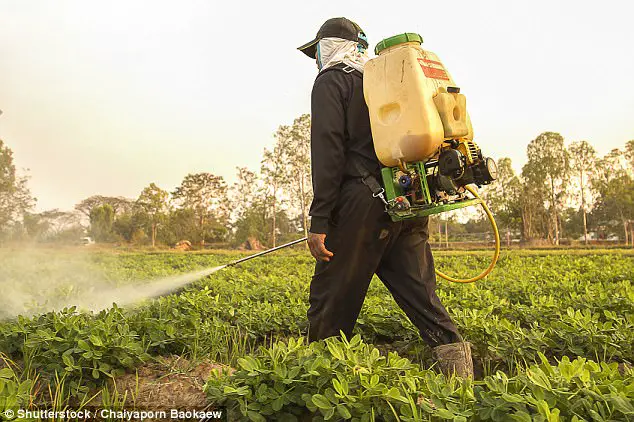
Photo via Daily Mail/Shutterstock
The Monsanto signs in St. Louis may have been taken down, but the company’s influence still looms large, especially in light of the continued controversy over glyphosate, the “probable human carcinogen” according to the World Health Organization’s IARC that is still sprayed in massive amounts across the country.
Following the landmark recent $289 million verdict in favor of Dewayne Johnson, a terminally ill groundskeeper who says he is still suffering from the effects of being exposed on the job, awareness has risen as to the dangerous and deleterious effects of the herbicide, which serves as the main ingredient in Roundup.
But any plans to potentially ban the substance even despite these turn of events may hit a serious snag soon – thanks in large part to one prominent Monsanto sponsored politician.
Monsanto Protection Act 2? 2018 Farm Bill Could Strip Right to Ban Toxic Pesticides
House Agriculture Committee Chairman Mike Conaway walked into his current post during an era when organic agriculture is gaining more of a foothold than at any point in recent memory.
 But according to a report from the Organic Consumers Association, Conaway has taken $10,000 from Monsanto this year alone, and as fate would have it, the representative is attempting to use his considerable power to do them an enormous favor (even though Bayer is now calling the shots, of course).
But according to a report from the Organic Consumers Association, Conaway has taken $10,000 from Monsanto this year alone, and as fate would have it, the representative is attempting to use his considerable power to do them an enormous favor (even though Bayer is now calling the shots, of course).
In 1991, local governments were granted the power to ban toxic pesticides and herbicides, according to a Supreme Court ruling which allowed them to make more stringent regulations of their own, the article said.
But since then, Monsanto has been exerting their enormous political resources and will to put an end to those rights at the state level—and they’ve mostly succeeded, except for in a few states like Maryland and Maine.
With a push from Conaway, Monsanto and Bayer just might get their way again in 2018, as the latest U.S. Farm Bill, which should be passed before the end of the year, includes language that would prevent local governments from restricting pesticide use on private property, such as schools, parks and other similar places.
“We fear that in the worst case, it could wipe away all of these city and county ordinances across the country,” said Environmental Working Group legislative director Colin O’Neil, who’s been tracking the bill and working with officials at local municipalities according to a report in the OC Register.
Considering that we are just now waking up to the dangerous risks of what these pesticides can do to our health, it goes without saying that the timing of this these provisions couldn’t be better for Monsanto and Bayer, the latter of which spent over $14,910,000 lobbying Congress in 2017 alone.
Because Monsanto was able to use state preemption to block local pesticide bans, only 7 states still let local governments regulate pesticides, the article continued.
In response, the OCA’s own lobbying arm, Citizens Regeneration Lobby, launched a drive to stop Monsanto’s “toxic tricks” and to protect the rights of local governments to ban toxic pesticides, especially if enough evidence is found demonstrating their dangers.
To learn more or to submit an email comment to your state’s members of the Senate, you can click on this link. The key part of the bill to mention is Section 9101, which contains the proposed block on local pesticide bans.
Current Status of the Farm Bill and Proposed Block on Pesticide Ban
Currently, the 2018 Farm Bill has stalled, as Republicans and Democrats were unable to reach a compromise and Democrats did their best to oppose these pesticide regulation bans.
You can learn more in this editorial based out of Massachusetts titled ‘Farm Bill shouldn’t prevent local control over pesticides.’
The bill is expected to pass later this year, with negotiations still ongoing. But whether or not it will end up containing the controversial anti-pesticide ban section remains to be seen — an outcome Monsanto, Bayer, and grassroots health advocates the country are waiting for with bated breath as the fall leaves continue to pile up. Time will tell, but one thing’s for sure: the glyphosate controversy is one that isn’t going away anytime soon, regardless of the outcome.
Related Reading: How One California Mother Got Roundup Banned from Her Community in Little More Than 2 Months Flat
Thanks for installing the Bottom of every post plugin by Corey Salzano. Contact me if you need custom WordPress plugins or website design.




